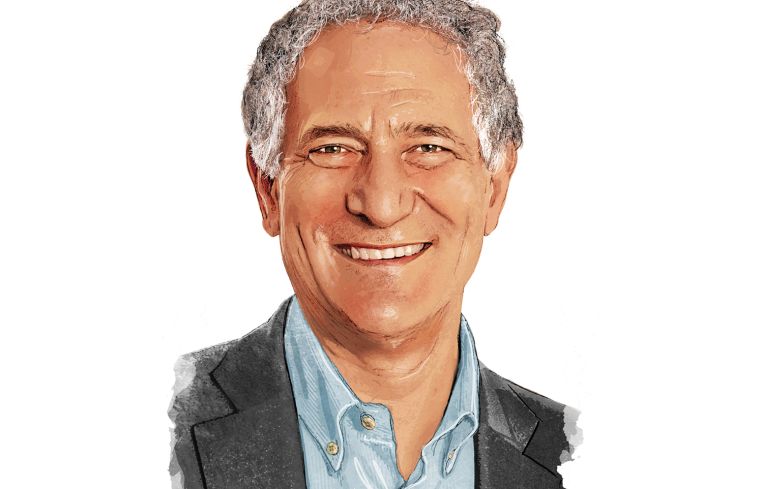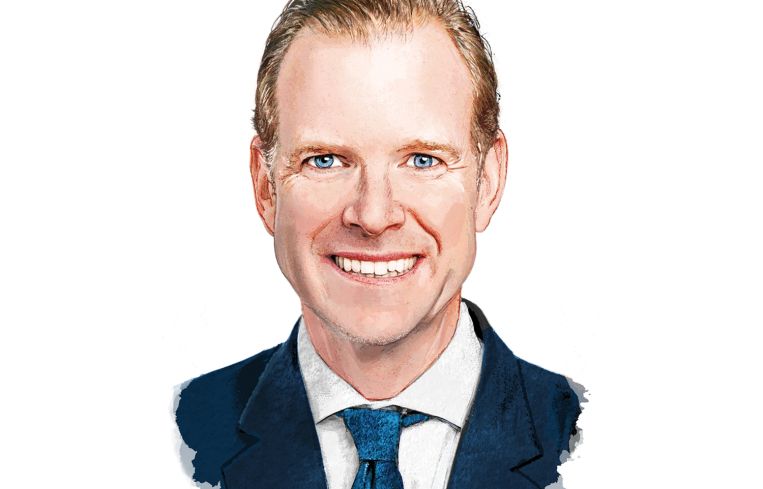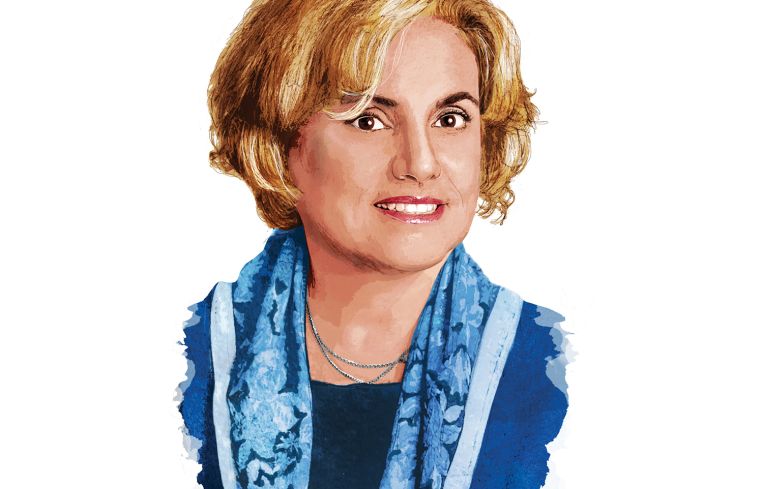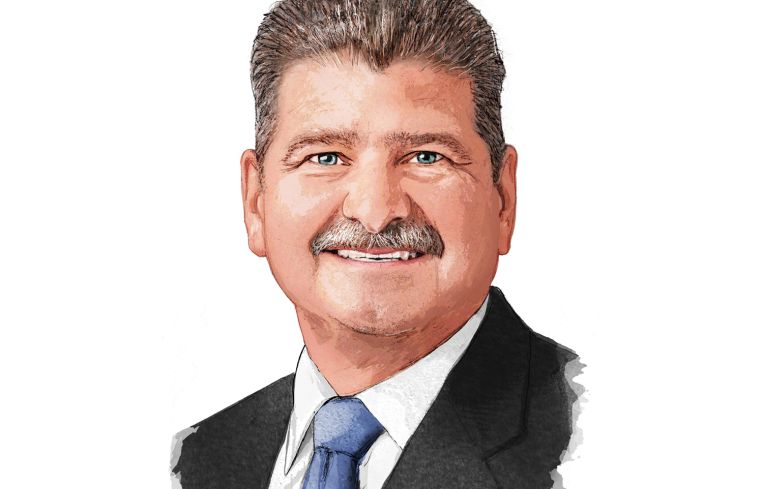REBNY 2023: NYC Is an Obstacle Course Worthy of Super Mario







The landscape in New York City sometimes feels akin to landing in the enchanted “Mushroom Kingdom” of Nintendo’s Super Mario game.
It is unquestionably a bright, colorful place, which — with the right bounce — holds plenty of hidden treasure. But it’s also a tricky setting where the obstacles, infinite chasms, villains and fireballs can obliterate the rookie player.
One organization that has made it past the first levels is the Real Estate Board of New York, whose annual gala is April 20.
Like last year, REBNY made the wise decision to ditch their pre-pandemic New York Hilton venue for a more stylish one: The Glasshouse in Chelsea, where in addition to the boldfaced political and commercial real estate names that will dot the scene, a dinner will be served by the likes of Daniel’s Daniel Boulud, Gramercy Tavern’s Michael Anthony, Hill Country’s Chris Stark and Fieldtrip’s JJ Johnson.
There will be much to discuss.
While there are positive things in commercial real estate in 2023 (read: multifamily, industrial, medical, even hospitality) New York’s pride and joy — our towering, triumphant office towers — continue to take a beating. Just take a look at the stock prices of the city’s largest office REITs. Every single one is trading below what it was a year ago. (Brian Pascus delves into this story here.)
Of course, this is the kind of issue that REBNY is in business to deal with. One could argue that REBNY’s influence should have crested in the last two years. For the first time in a long while, the governor and the mayor are two allies of the organization. While Gov. Hochul skated past a political threat in the form of Lee Zeldin in November (isn’t The Legend of Zeldin a Nintendo game?) she still commands a great deal of admiration from many real estate pros. And they have real expectations. (See Aaron Short’s story.)
The big kahuna for the politicians, the lobbyists, the real estate professionals and the city as a whole is, naturally, housing.
Some interesting affordable housing alternatives are popping up, like income-limited co-ops. (Rebecca Baird-Remba has a report.) And there are certainly plenty of affordable developers like LMXD’s David Dishy making plans. (See Baird-Remba’s interview.) And there are plenty of affordable housing lenders working through a tough climate such as Merchants Capital’s Mathew Wambua.
Like every REBNY gala, in addition to the gossip and the glad-handing, there are the names that REBNY honors every year. Larry Getlen spoke to Dan Doctroff, who received the John E. Zuccotti Public Service Award; Barry Gosin, who got the Bernard H. Mendik Lifetime Achievement Award; Rick Marek, who received the Louis Smadbeck Memorial Broker Recognition Award; James Nelson who got the Young Real Estate Professional of the Year Award; Elly Pateras, who was named the George M. Brooker Management Executive of the Year; John Santora, who was recognized with the Kenneth R. Gerrety Humanitarian Award; and Mary Ann Tighe, who won the Harry B. Helmsley Distinguished New Yorker Award. (Scroll on to read more about the honorees.)
So toast, eat, and be sure to dodge the obstacles ahead.
Dan Doctoroff
The John E. Zuccotti Public Service Award
Founder and chairman of Target ALS
There are times when the universe seems to heap great challenges on those it believes can successfully take them on.
Dan Doctoroff can certainly meet a challenge.
Over the course of his distinguished career, the former deputy mayor of New York and CEO and president of Bloomberg LP has been instrumental in the rezoning and rebuilding of much of New York City.
“When I was deputy mayor, we rebuilt Lower Manhattan, Downtown Brooklyn, Greenpoint, Williamsburg, Long Island City, Hudson Yards West,” Doctoroff said. “We had a housing plan that housed 500,000 people. And that doesn’t talk about the parks and other things we created like the High Line, Governors Island or Brooklyn Bridge Park. When I was deputy mayor, I led 289 separate initiatives, of which I think around 284 ended up happening.”
It is a strange irony, then, that when a man of accomplishment like Doctoroff was diagnosed with amyotrophic lateral sclerosis (ALS) in 2021, he had already for eight years led a charity dedicated to curing that disease. After losing his father to ALS in 2010 followed by his uncle in 2013, Doctoroff, in association with Bloomberg Philanthropies and David Rubenstein, founded Target ALS, an organization dedicated to creating a collaborative framework for scientists studying ALS treatments and cures.
Since its founding, Target ALS has helped bring about over 60 ASL drug development programs, accelerating the validation of more than 12 therapeutic approaches. Five ALS drugs are now in clinical trials thanks to the organization’s work.
Doctoroff said that he hasn’t had a bad day since his own diagnosis. “Bad hours,” he said, “but not a bad day.”
This speaks less to any physical miracles — Doctoroff said he’s at around 38 percent of respiratory capacity and has clear weaknesses in his right hand and foot — than to a relentless optimism that keeps him moving ever forward.
“Physically, I’m doing better than I would’ve imagined,” Doctoroff said. “I’m an optimist. Not that I think I’m going to get cured, but I look on the bright side of whatever situation I’m in. So I’m doing great.”
At the time of his diagnosis, Doctoroff had been serving as founder and CEO of Sidewalk Labs, an organization dedicated to bringing urbanists and technologists together to improve city life.
He retired from that position after his diagnosis and dedicated his time to scaling up Target ALS, aiming to raise $250 million toward research on the disease. (He won’t reveal how close the organization is to that goal at this time.)
For all of his accomplishments, helping make ALS a non-
fatal disease might one day become the greatest of them all.
“We’ve led a transformation in ALS research. Over 10 years, we’ve made remarkable progress,” Doctoroff said. “One in 400 people will die of ALS if we don’t have effective treatments. With the money I’m raising, we will hopefully get to a point in the not terribly distant future where everybody can live with this disease. That’s my goal. If Target ALS continues on this path, this will be the most significant thing I do in my life.” —Larry Getlen
Barry Gosin
The Bernard H. Mendik Lifetime Leadership in Real Estate Award
Chief executive officer of Newmark Group
Barry Gosin has been working in commercial real estate since 1973, and received his first REBNY award the following year.
“I won the REBNY award in 1974 for moving the toy industry into 41 Madison,” said Gosin. “At that time, you couldn’t give away space. Since then, I’ve won that a bunch of times for making a difference.”
Gosin’s immersion in the industry goes to the honor he’s now being awarded: The mentor who recruited him into REBNY was the late Bernard Mendik, this award’s namesake.
“I remember having lunch with Bernie when he recruited me,” said Gosin. “He said that I should be on the board of REBNY. It could have been anybody, but it was Bernie. So being recognized for the Bernie Mendik Award has a particular meaning for me. He was an interesting, creative guy who was one of the leaders of the industry at the time.”
Gosin has led Newmark since 1979, and has grown the company from 25 employees to 6,700 operating in around 180 offices worldwide. Newmark generated revenues of over $2.7 billion in 2022, and in the past decade-plus has seen annual compound growth rates of 25 percent. He led Newmark through a sale to BGC Partners in 2011, the company’s IPO in 2017, and the company’s spinoff from BGC in 2018. Overall, Gosin has led Newmark through the acquisition of over 50 companies.
In the midst of all this, he has also worked on many projects that helped shape New York’s business landscape.
“I started the New York Design Center at 200 Lexington Avenue, which is now the place to buy furniture for designers,” said Gosin. “I did the Bloomberg headquarters in the early 2000s. And I represented so many different law firms over the years.”
It’s not just the deals, either. Real estate has taught Gosin to give back, he says.
“Coming from a middle-class family in Brooklyn, I didn’t understand what civil society and civic involvement and charitable involvement would be,” said Gosin. “Being successful in real estate [teaches you how] integrated the real estate business is into the community, and how responsible and accountable they are for change and giving back. I don’t think there’s any industry as charitable and more involved in civic society as the real estate business, and they get banged around a lot. But that’s where I learned the importance of giving back, the importance of being involved, and of taking an interest in the political and civic side of things. It’s all fully connected.”
Looking back, Gosin is grateful for everything he’s learned in real estate, and everything the profession has given back to him.
“I’ve been able to do everything that one could dream of doing in a career,” said Gosin. “I couldn’t imagine really working anywhere else. I’ve been able to change direction, expand what I did, constantly innovate, constantly create, and it’s been an amazing platform and an amazing ride.” —L.G.
Frederick K. Marek
The Louis Smadbeck Memorial Broker Recognition Award
Vice chairman of Helmsley Spear LLC
Rick Marek got his start in commercial real estate at age 21 at the old Julien J. Studley Inc.
This was the beginning of a long career as a tenant representative, as Marek learned every detail and nuance of New York’s sprawling office market, ultimately focusing on the legal and financial services industries.
Marek spent 34 years at Julien Studley. An MBA graduate from Syracuse University, he later spent 15 years as president and co-founder of tenant rep company the Vortex Group before a short stint at Avison Young served as a brief stop toward the Helmsley Group.
“Helmsley Spear is a growing company now with younger brokers. It’s like a family,” said Marek. “I like that kind of company the best.”
Marek also spent 22 years as chair of REBNY’s Plaza Committee, and has served on REBNY’s Commercial Board of Directors and the REBNY Board of Governors. As such, this broker recognition award holds special meaning for him. “This means that people in my industry, fellow real estate brokers and agents as well as some landlords, think that I have some intelligence, integrity and experience,” Marek said.
This is the second time the organization has honored Marek. In 2004, he received the Kenneth R. Gerrety Humanitarian Award for his fundraising for the children of porters at the World Trade Center and workers at Windows on the World who had lost parents in the 9/11 attacks.
Marek has also been a trustee of Educational Alliance, a member agency of the United Jewish Appeal, for more than 20 years, and is a member of the Rockefeller University Council, an advisory board.
Asked about how a life in real estate has shaped him, Marek responds that his career has “helped me develop instincts that I’ve carried on through today.” —L.G.
James Nelson
The Young Real Estate Professional of the Year Award
Principal and head of New York tri-state investment sales at Avison Young
After sharing a perplexed chuckle at why a distinguished 25-year veteran of commercial real estate is receiving REBNY’s young professional award, James Nelson shares a reason the accolade holds genuine meaning for him.
“What I really love about this award is that it’s a joint award of the Young Men’s/Women’s Real Estate Association and REBNY,” Nelson said. “The fact that two incredible organizations that do so much good are recognizing me makes it that much more meaningful.”
Nelson has served as chair of the diversity committee for YM/WREA and worked closely with REBNY on various initiatives related to broadening diversity in commercial real estate. “I really enjoyed the opportunity to put together some actionable steps to promote diversity and inclusion in our industry, and to execute on them,” Nelson said.
Throughout his career, Nelson has sold more than 500 properties and loans totaling over $5 billion. He also founded two real estate funds with total capitalizations of over $350 million.
Asked to name some of his career highlights, he mentions a REBNY Deal of the Year award his team won in 2020.
“When you can do work for not-for-profits, that is by far the most rewarding,” Nelson said. “The Deal of the Year award we won was for a transaction we called ‘The Trinity of Sales.’ It involved Weill Cornell, the Episcopal Church’s Church of the Epiphany on 74th and York, and Jan Hus Presbyterian Church. It was basically a simultaneous transaction between the three not-for-profits that found a site for Weill Cornell to build permanent housing for their employees, helped the Church of the Epiphany capitalize on untapped development potential while still staying in the community, and found Jan Hus a new location where they could continue their soup kitchen.”
Over the past few years, Nelson has shared his expertise with the world in several ways. He hosts a podcast called “The Insider’s Edge to Real Estate Investing,” and released a book by the same name earlier this year through McGraw Hill.
“There is a point in your career where you’re now in the position to give advice to others,” Nelson said. “With the podcast and now my book, this has really been the next chapter of my career in the sense that this opens this up to a larger world. I’ve been spending a lot of time visiting various university master’s programs. I’ve already been to Cornell, Columbia, NYU and Baruch to speak to students about real estate investing, and I’ve got Wharton planned.”
While Nelson is proud to accept this young professional award, in truth his fulfillment these days comes from not only continuing to pursue deals, but in using his position to help organizations in need, and in bestowing a veteran’s knowledge to those around him.
“We have one team that handles sales in New York City, and we meet every morning as a group,” Nelson said. “To be a leader for that group, and to help others rise up in this business and achieve success, that’s an incredible thing that I’m proud of.” —L.G.
Elly Pateras
The George M. Brooker Management Executive of the Year Award
Executive managing director of Douglas Elliman Property Management
As someone who has spent years active in the upper reaches of REBNY and who was also awarded the Residential Management Executive of the Year Award in 2008, winning this award means a lot to Elly Pateras.
“REBNY is a pinnacle organization of our industry,” said Pateras. “They’re wonderful not only for educating people, but also for bringing together all of the different facets of real estate, whether residential or commercial brokerage. So it’s really an honor to be part of their organization. To get this award is really humbling in a lot of ways.”
Pateras has been with Douglas Elliman since 1999. Prior to that, she was vice president and director of management at R.A. Cohen & Associates, where she developed the company’s co-op and condominium business. At Elliman, Pateras oversees Douglas Elliman Property Management (DEPM), which manages over 60 buildings in New York, including many along Fifth and Park avenues.
“It’s challenging managing people’s homes and making them feel like the values of their homes are going up, and that they’re taken care of,” said Pateras. “Think of all the things we had to do to make people feel safe during COVID. Making them feel comfortable and safe was a challenge, but it was also rewarding.”
Pateras emphasizes these two seemingly divergent — but essential — aspects of her job: making people feel comfortable in their homes, and also helping advise them on maintaining the value of their investment.
“We offer guidance on things they could do to bring value, whether it be to add an amenity or to renovate something that’s tired,” said Pateras. “We help them with the financing of any of their capital projects. We also help them understand what they have to do to comply with all of the regulations.
“When you’re dealing with commercial people or developers,” she added, “they know this because they’re in the industry. Our audience is much different. We have lay people volunteering to serve on boards. They don’t have that kind of exposure to what we have to do to manage property in New York. Part of our role is to educate them, to let them know what they need to do to comply.”
In addition to her everyday property management work, Pateras represented DEPM, working with the Realty Advisory Board on Labor Relations on contract negotiations with Local 32BJ, the big building service workers union.
Pateras takes great pride in the clients she has served over her years in the business, especially those that have rewarded her work with long-term tenancies. “Client retention means we’re doing a good job,” said Pateras. “Longevity in managing some of these buildings is a good thing, and makes you feel proud of what you’ve done — you’ve gone through a series of capital projects, a series of boards that have come and gone, and you’re still there being the institutional foundation of some of these buildings.” —L.G.
John C. Santora
The Kenneth R. Gerrety Humanitarian Award
Chairman of Cushman & Wakefield’s New York tri-state
In this day and age, it’s nearly impossible to imagine someone staying at the same job for almost a half-century outside of their own family’s firm.
This is why it sounds so remarkable when John Santora mentions that he started at his current firm, Cushman & Wakefield, in July 1977.
“I took a summer helper’s job at 100 Park Avenue and just never left,” Santora said. “I kind of liked it.”
But Santora emphasizes that while he has spent over 45 years at one firm, he has held many positions, taking in the full breadth of experiences commercial real estate has to offer. “Every few years my position changed in one way or another,” Santora said. “Ultimately, when you get roles that are national and international and you sit on various boards around the globe, it’s as energizing and exciting as can be.”
Santora — whose positions at the firm have included global COO, chief integration officer, and CEO of North America — sees this award as perfectly reflective of his career direction.
“From my early days at Cushman & Wakefield, I realized pretty quickly that giving back to the communities we live and work in is so important in so many ways,” Santora said. “When I began, it was expected, but then you realize how important it truly is and how much you can change things for the better by giving your time.”
Asked to discuss these efforts, Santora simply walks us through his day.
“This morning, I was on a board call, a construction call, because we’re finishing up the emergency room and building a new operating room at Richmond University Medical Center, a small private hospital on Staten Island,” Santora said of the project in his home borough. “I spend a great deal of time helping raise funds for the emergency room and the OR, and helping get us through the construction. Then I finish that, and get on an hour and a half call with the Realty Advisory Board, which is a volunteer position. I’m chairman of the Realty Advisory Board.”
Santora is also a member of the FDNY Foundation, which has a place near and dear to his heart for how close he came to becoming a firefighter.
“I wanted to be a fireman. My father was a battalion chief, and my brother was a captain,” he said. “In 1977, New York City was on the verge of bankruptcy, and was laying off cops and firefighters. That’s why I ended up staying with Cushman & Wakefield. So my way of giving back is being on the board. We raise $6 to $10 million a year on behalf of the Fire Department for training and equipment that the city doesn’t provide, and we provide 100,000 smoke detectors a year for low-income housing.”
Such fulfillment from, and commitment to, this sort of giving back is why Santora is a match for REBNY’s humanitarian award.
“You give your time, your money, your expertise and your mentorship, so being recognized for that is wonderful,” Santora said. “It’s not about how good you are at what you do or how great your company is. It’s people recognizing that you give back, and that you care. It’s a better way to be recognized.” —L.G.
Mary Ann Tighe
The Harry B. Helmsley Distinguished New Yorker Award
Chief executive officer of CBRE’s New York tri-state
There is an inherent irony in Mary Ann Tighe receiving an award named for iconic real estate magnate Harry Helmsley.
When Tighe started in commercial real estate — in the midst of an already accomplished career that included serving as deputy chair of the National Endowment for the Arts and founding the A&E channel — she was referred by a friend to four industry titans and contacted them all.
Three of the four called her back. Helmsley did not.
“An independent broker by the name of Joe Bernstein gave me the names and phone numbers of four people. Helmsley was one,” said Tighe. “I called, but never got a reply. I think Helmsley was not active in the business by that point. But Seymour Durst took me to lunch.”
Durst connected Tighe to the Edward S. Gordon Company, where she worked until joining CBRE in 2002, in the process building a distinguished career in real estate that has made an inescapable impact on New York City.
Of her multitude of accomplishments — including work on the renewal of 1.15 million square feet at 1211 Avenue of the Americas for Fox Corporation and News Corp. at the end of 2022 — Tighe most proudly recalls her impact on the rebuilding of the World Trade Center site.
“I’ve contributed there in two different ways,” Tighe said. “I’ve brought my own tenants, who are almost 2 million square feet of the space currently occupied at the new World Trade Center. I represented these people as the tenant rep broker. And, as the agent for Larry Silverstein, I brought well over 5 million square feet of tenants to the trade center. That’s had an enormous impact.”
Tighe notes that dealing with the WTC rebuilding was often an emotional affair. “For close to the first decade of our efforts, people didn’t even want to look at the site. I often point out that much of our success there has been with companies headquartered outside of New York because New Yorkers had a very hard time even coming to look at it,” Tighe said. “So the emotional component was part of the challenge of rebuilding this open wound that existed for the city.”
Regarding other impactful projects, Tighe also notes her work on the rezoning of Midtown East.
“We were in a serious decline in terms of the advanced age of the buildings in the most valuable business district in New York City,” she said. “Now we’re seeing new projects happen, and it’s thrilling to see the district become highly desirable, and to take on a more useful profile.”
Tighe is especially proud of the use of air rights in the rezoning. “We’re doing it with air rights from the landmarks of Midtown East. As part of that deal, the ability to sell those air rights means that money has to be put in a fund so that the buildings are maintained.”
Looking ahead, Tighe hopes to see the completion of 2 World Trade Center, and will continue working on the sale of Midtown East air rights. “I’m a trustee of St. Patrick’s Cathedral,” she said, “so I’m particularly interested in selling St. Patrick’s air rights.” —L.G.

![Spanish-language social distancing safety sticker on a concrete footpath stating 'Espere aquí' [Wait here]](https://commercialobserver.com/wp-content/uploads/sites/3/2026/02/footprints-RF-GettyImages-1291244648-WEB.jpg?quality=80&w=355&h=285&crop=1)

